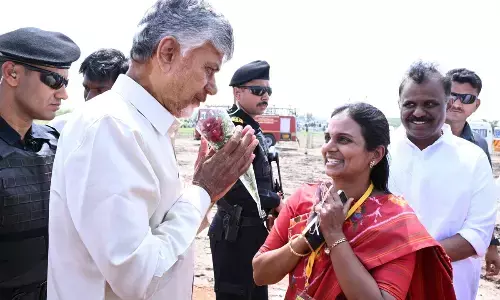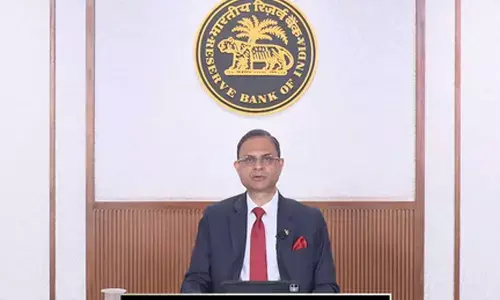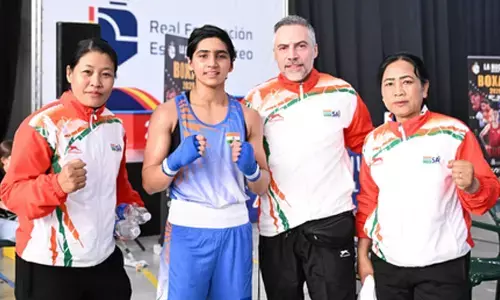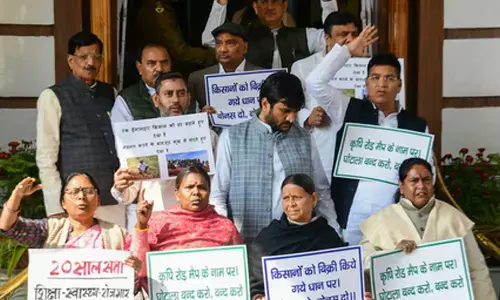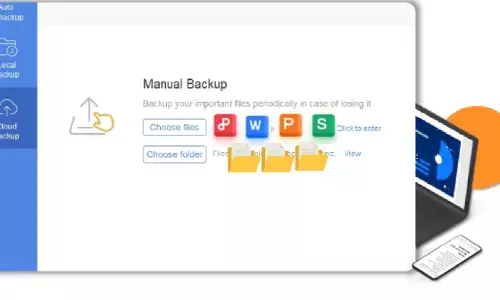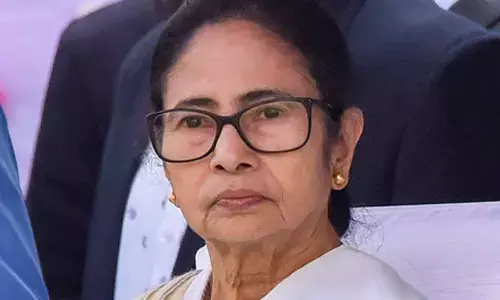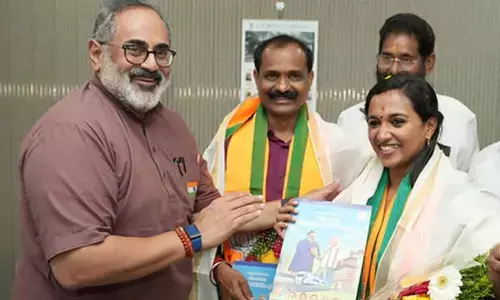Time to woo the west

Having “looked east” frequently, and more recently, “looked south,” visiting some Indian Ocean nations, it is time for Prime Minister Narendra Modi to “look west.” The new term is “link west.” He embarks on his first bilateral visits to France, Germany and Canada. That he has met their respective leaders at multilateral summits should help in forging closer ties.
Modi has unveiled his “Make in India” offer to the world at large and European collaborators, including France and Germany, have already shown interest
Having “looked east” frequently, and more recently, “looked south,” visiting some Indian Ocean nations, it is time for Prime Minister Narendra Modi to “look west.” The new term is “link west.” He embarks on his first bilateral visits to France, Germany and Canada. That he has met their respective leaders at multilateral summits should help in forging closer ties.
France and Germany are among India’s bigger collaborators in Europe. There have been impressive trade, technology transfer, investment and cultural exchanges. This time, on the anvil are economic ties and quest for uranium to fuel nuclear power generation. India is looking, not just to investment from Europe, but also higher levels of technology that would enable it to push its industrial production. It believes in dealing on equal footing, but is pragmatic about what to give and take.
Even for Modi’s high pitch approach, his taking top corporate honchos and businessmen representing 400 companies is significant. He has unveiled his “Make in India” offer to the world at large and European collaborators, including France and Germany, have already shown interest. Among things, India is looking for are green energy, infrastructure, affordable housing and help in the project to clean Ganga and other rivers.
Unlikely to be signed during the French visit will be the $15 billion deal for 126 Rafale combat aircraft, to add to the Mirages that it had supplied three decades back. Modi was to have met German Chancellor Angela Merkel on way to the US last year. Significantly, while India has dealt with individual European nations with fair success, it has problems with the European Union as a whole. The collective concerns are different and differences over the Free Trade Agreement remain unresolved for three years.
That, and attitude of Italy, the current EU chief, over two of its sailors under trial for shooting two Indian fishermen, has led to the Brussels part of Modi’s tour being cancelled. After the United States’ “market radicalism” approach and Southeast Asia’s “development authoritarianism,” India can also look at the European approach to development paradigm that encompasses social security. It remains to be seen, now and in foreseeable future, whether Europe can match the aggressiveness that the US, China and Japan have shown in courting India.
The easier part of the tour could be Canada. Modi will be the first PM since late Indira Gandhi visited it in 1973. Canada has been the original supplier of uranium for nuclear power stations and could satisfy India’s quest for more. It is India that has to sort out its liability issue, so that French giant Areva can supply six power reactors for Jaitapur project in Maharashtra. Modi has been on courting the diaspora. Canada offers 1.3 million, a large chunk from Punjab. His balle balle with them could impact PM Stephen Harper’s quest for re-election as Canada goes to the polls.








